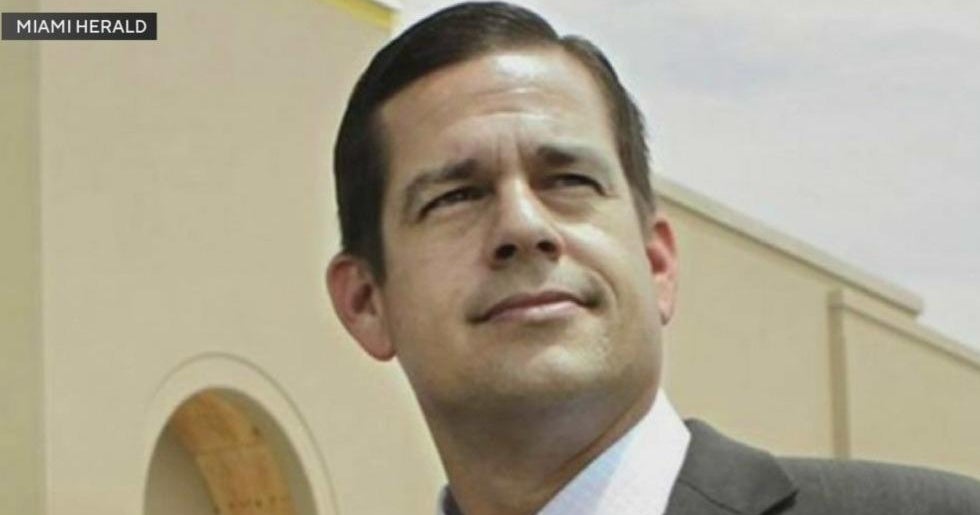Leaving Cuba: A Father And Son Risk Lives At Sea
Follow CBSMIAMI.COM: Facebook | Twitter
MIAMI (CBSMiami/AP) — For decades Cubans have attempted to cross the Florida Straits on homemade rafts, risking their lives rather than staying in Cuba.
Jose Fuente Lastre is one of tens of thousands to making the harrowing trip.
It was hot and dark and mosquitoes bit at his skin as 23-year-old Lastre boarded a raft with eight other men, intent on fleeing Cuba.
Their flimsy vessel built from scraps of metal, wood and inner tubes had failed repeatedly. Oil leaked. The propeller sputtered.
"I'm not going," Lastre had announced. "It seems we weren't meant to leave."
"Don't be a fool," shot back his stepfather, Antonio Cardenas. "After trying this hard you have to try again."
Four of their companions decided it was too risky, jumping out and wading back to shore.
Lastre looked at his stepfather's wrinkled face. They had invested nearly everything they owned to build the raft.
They switched on the motor taken from a Russian tractor-trailer.
Lastre didn't grow up with dreams of leaving Cuba.
He lived with his girlfriend, Yainis, and resold bread on the black market, making about $115 a month, far more than the $20 average Cuban salary.
His dream was to save enough money to build a house like his stepfather's one day.
Then he saw his neighbor Omarito disappear on a raft, and come back later with enough money to build a house and a business.
Watching American movies with Yainis, he couldn't help but notice that even teenagers in the U.S. had cars.
Lastre and Yainis had grown up under the revolution, never knowing life without Fidel Castro or the embargo, but far more exposed to outside influences than previous generations. About 500,000 U.S. travelers now visit the island each year, most of them Cuban Americans. They bring stories of life in the U.S., cellphones and laptops
With no close family in the U.S., Lastre felt he could never afford these things.
The thought of Lastre on a raft at sea made Cardenas, 50, and his wife, Olea, nervous. But if his stepson was going to try it, he wanted to protect him.
"Go and look at the raft," Olea said. "If it looks strong, go with him."
Yennier Martinez Diaz, 32, watched from shore. An agricultural worker who lived near the launching spot, he had asked to join them. But there was no room — until the others jumped out.
"Do you want to come?" Cardenas asked.
Diaz climbed into the raft.
At first the skies were blue, the water calm. They drank water, ate crackers and started making plans.
"The first thing I'm going to do is get a job," Cardenas declared.
By the sixth day, they were nearly out of gas, with no sign of land.
"We should use what we have left for when we're close to shore," suggested Cardenas, the oldest on board.
They would need to move quickly then — If the U.S. Coast Guard reached them in the water, they'd be sent back to Cuba.
When they woke the next day, all they saw was blue sea.
"Pa' Cuba!" one of the men began yelling.
They'd gone seven days without seeing land. A few others agreed.
"To Cuba no," Cardenas insisted. "We are going to make it."
Desperate, he took out a sledgehammer and threatened to destroy the motor if anyone touched it.
The next day, the men saw a flicker of light track across the sky, then another. Planes. They began rowing the boat in the same direction.
Their 10th day at sea, they kicked on the motor and sprinted toward shore, hitting sand near a condominium. They jumped out and ran barefoot to a metal gate. A guard opened the door.
"Welcome to the land of liberty!" he said.
In Miami, the men were treated like celebrities.
Soon, though, their days looked like this: Long hours in a small hotel room, awaiting resettlement.
Every few days, they made costly calls to family in Camaguey.
One month and three days later, the men woke before dawn and loaded nine duffel bags filled with donated clothes into an airport shuttle. Their destination: Portland, Oregon, where the Church World Service had arranged housing, English classes, and jobs.
Cardenas proudly took photos on his cellphone: Lastre holding up his airplane ticket; Diaz pushing a cart of luggage.
Three months after the men's arrival, Obama surprisingly announced efforts to restore ties with the island they left behind.
The news came as a relief: Perhaps they would not have to wait years to see their families.
Had they known relations between the U.S. and Cuba were about to improve, Cardenas said he would have risked the journey anyway.
"I'm not looking back," he said.
(TM and © Copyright 2014 CBS Radio Inc. and its relevant subsidiaries. CBS RADIO and EYE Logo TM and Copyright 2014 CBS Broadcasting Inc. Used under license. All Rights Reserved. This material may not be published, broadcast, rewritten, or redistributed. The Associated Press contributed to this report.)
RELATED CONTENT:



